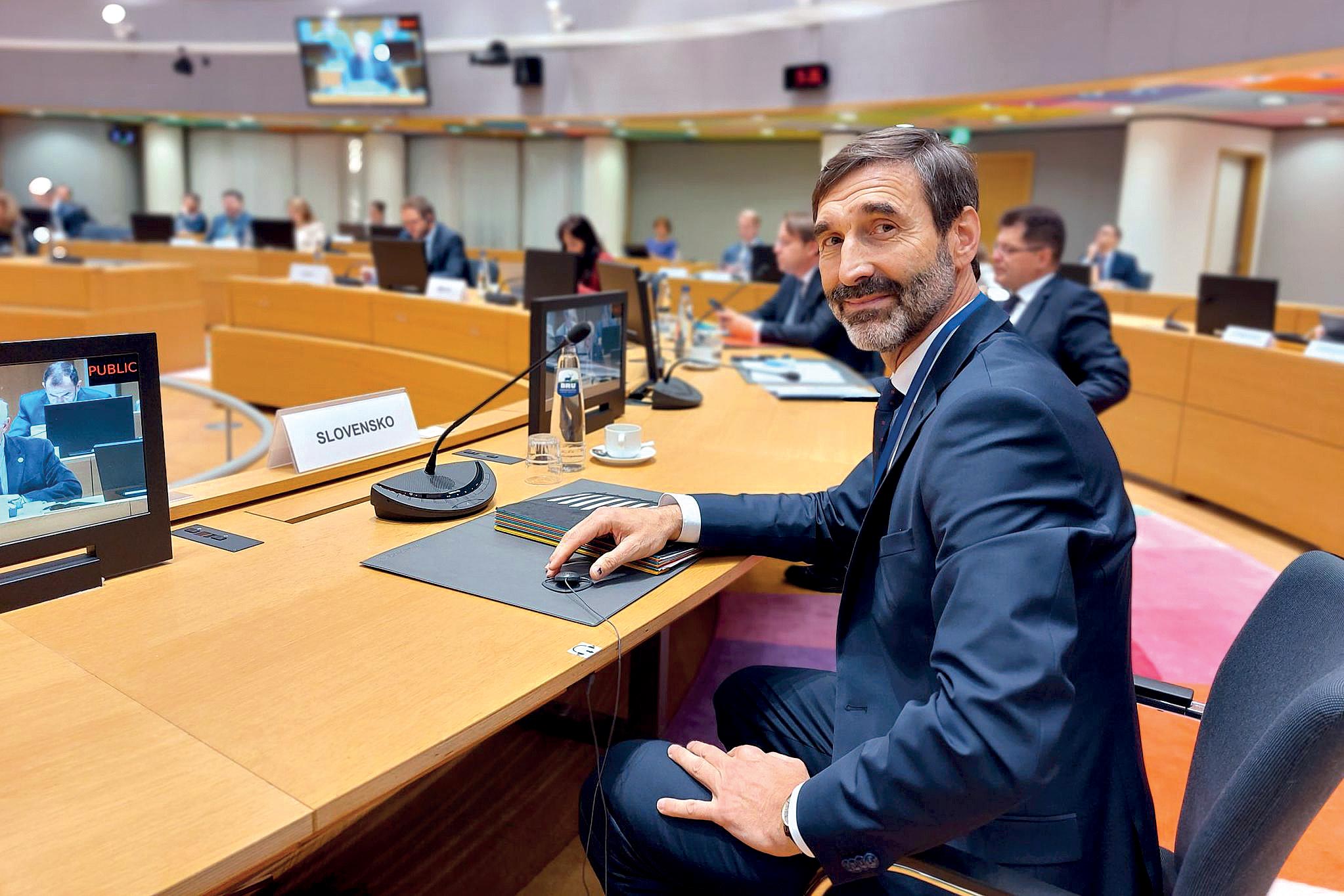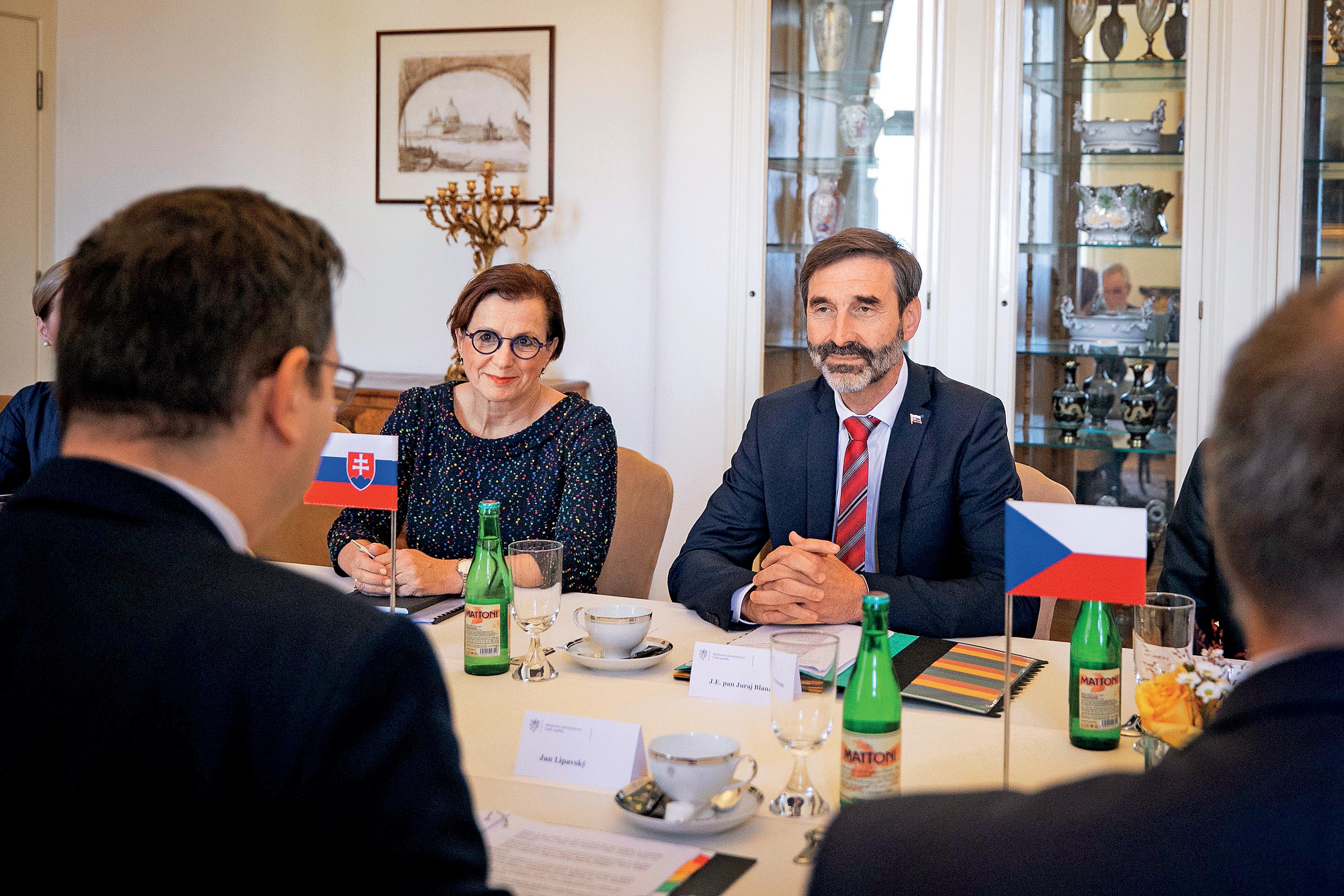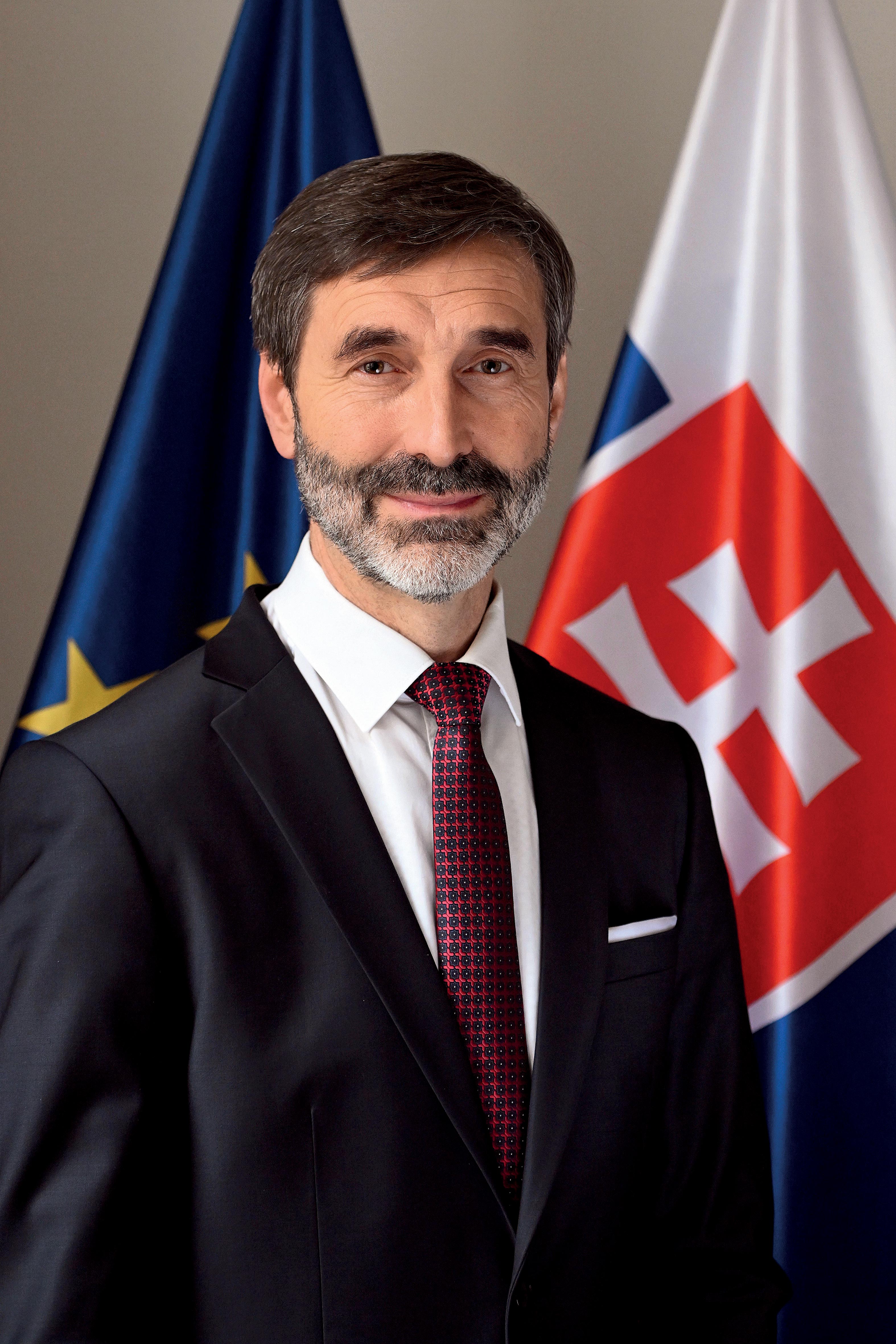At almost fifty-eight years of age, Juraj Blanár is a seasoned political expert, he’s been in high-level politics for over twenty years. When he became the new Minister of Foreign Affairs following last year’s parliamentary election, he stuck to a traditional rule, and his first journey abroad led to the Czech republic.
Prague has now hosted all key Ministers of the new Slovak government. How do you assess the beginning of this cooperation between your new government and Czechia, and in what ways is it important for Slovakia?
The Slovak and Czech republics are neighbors who spent decades in a joint country together, and that is reflected in the quality of our relations. I dare say that since our separation, which happened in a decent manner and could serve as an example for other more tense situations across the world, the Slovak-Czech cooperation has greatly improved. This is no doubt aided by professional, business and certainly even familial ties.
In the Czech republic, President Petr Pavel’s New Year’s speech opened with the topic of adopting the Euro. Slovakia has had the Euro for fifteen years now. What’s it been like?
Every single economy is different, which is why comparing them is complicated. I can attest to the Slovak experience, though. This year marks our fifteenth anniversary of entering the eurozone, and it’s granted our economy a higher level of certainty and safety. We are a part of a larger whole, having a strong business balance with countries such as Germany, which has made the lives of our businesses much easier since we share a currency. And Slovak citizens traveling abroad are no longer burdened by the need to exchange one currency for another. The advantages of Euro trump the negatives, which can be prevented with strong financial policies and the state’s steady hand.
How important is Slovakia’s cooperation with Czechia when it comes to defense? Did the attendance and leadership of Czech soldiers help Slovakia during the NATO mission in the east of the country?
I must answer your question in a strongly political way. Our predecessors, the three different governments that lost their mandate - or never really had one in the first place - managed to completely disarm the Slovak army over the course of three and a half years. They foolishly gave away military equipment to the Ukrainian battlefield, until we became completely helpless. And so now we can’t defend ourselves, or rather don’t have any functioning fighter jets or sufficient defense systems. Munition storages were emptied, and I’d rather not mention the miserable state of the equipment. Let this be a warning for the future, that no state, even if it is a member of NATO, should ever deprive itself of its own defense capabilities. It’ll take years for us to fix this, and that’s why we’re currently dependent on our allies, for example the Czech soldiers mentioned.

Slovakia and Czechia have one significant interest in common, and that’s nuclear power...
Nuclear energy has a significant impact on the stability of the energy industry in Slovakia, but also the safety of energy when it comes to electricity. It’s an important part of the state taking care of its citizens, and ensuring stable and acceptable prices for them as energy consumers. I see Slovakia as an example of a successful development of the nuclear energy industry, and the further development of it is key for us. Here we share an almost similar position with the Czech republic on the European scale, the expression of which is the annually alternating place hosting the European Nuclear Energy Forum, or ENEF, and our cooperation in the nuclear alliance. And I would like to highlight another point. It is thanks to nuclear energy that Slovakia’s carbon footprint is among the lowest in the EU, and that’s why we were able to start decreasing ineffective mining practices, and generating electricity from coal.
Does the new government bring with it a change in Slovakia’s approach to its EU and NATO memberships? What would you like to do differently from the previous cabinets?
We communicated this long before the election, and then in pre-election discussions, we told people how we meant to approach the Ukraine issue. And we’ve been keeping our promises. We’ve ceased any and all military aid from the Slovak Armed Forces stock, because even though we are a part of NATO, we must take care of our own defenses. But that doesn’t mean we don’t help the people of Ukraine at all. In this period, we’ve provided them with a good amount of material to tide them over the winter, from generators to warm clothes. We’re also preparing demining equipment for them, to lower civilian casualties in this conflict.

During a meeting with his Czech counterpart Ján Lipavský.
The European Council voted for a migration reform towards the end of last year. Does Slovakia consider it, much like Czechia does, insurance against the impact of another wave of migration from Ukraine?
The current Slovak government has an unchanging stance on illegal migration. We refuse it, and declare that it is necessary to solve the emerging issues on the borders of the Schengen Area. This is where we are willing to aid other countries, but we won’t accept any compulsory quotas or fees for not accepting illegal migrants. This is a line we won’t cross. When it comes to the people escaping Ukraine, the Slovak people opened their arms and hearts to them from the very beginning.
The European Parliament has been inquiring into the Slovak judicial and police reform. Do you think the concern for breaking the rule of law in Slovakia is justifiable?
I categorically refuse allowing internal political battles to transfer into the European field. It’s the Slovak opposition’s reprehensible behavior, unable to convince voters or politically beat us with strong enough arguments, but instead continuously creating tension and pressures based on misinformation, deceit, or even outright lies. I also disapprove of the kind of behavior that ends up damaging the interests of not only our nation. To further specify your question, it’s not about a judicial and police reform, but about changes in criminal law, and mostly about the annulment of the privileged position of the special prosecutor’s office, at the helm of which stands an unsuccessful politician, who also brings politics into its work. The majority of the member states don’t have a special prosecutor’s office, and not even the Slovak version has an independent position, but is only a part of the Prosecutor General’s Office, so it must be said that we’re only fixing the very deficiencies that the former representatives of ruined governments used in the political battle against us.
The author is a European editor for Deník

CV BOX
Juraj Blanár (born on the 19th of May 1966 in Žilina) is Slovakia‘s Minister of Foreign and European Affairs, and the deputy leader of the SMER-SD party.
He studied at the Faculty of Civil Engineering at the College of Transport and Communications in Žilina, then worked in Žilina Communications as a maintenance technician, and later in the Žilina-based Váhostav company as the leader of the test center and technical development.
In the 2002-2006 election period, he was elected a member of the National Council for the SMER party (called SMER-social democracy starting on the 1st of January 2005), and became a member of the Environmental Protection Committee, and the Committee for European Affairs. He took a seat in the National Council once more in the 2016-2020 election period, was a member of the Healthcare Committee, and deputy chairman of the Function Incompatibility Committee.
From 2005 all the way to 2017, he was the governor of the Žilina self-governing region. After the 2023 parliamentary election, he became the Minister for Foreign Affairs in the fourth government of Prime Minister Robert Fico.
He is married, and has three children.